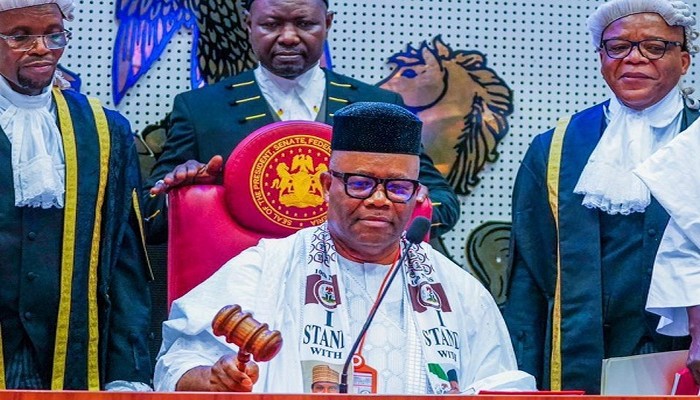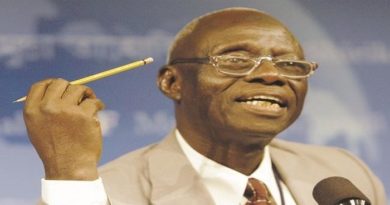Senate pledges to enact laws to lessen Nigeria’s rising debt burden
Nigeria’s upper legislative chamber has pledged to make laws to reduce Nigeria’s huge rising debt burden.
This decision follows concerns of overwhelming rising debt and insufficient revenue and its corresponding negative impact on Nigeria’s economy.
The Senate further said it would come up with policies that would increase the revenue of Ministries, Departments and Agencies (MDAs) and prescribe sanctions for defaulting ministries in accordance with the Fiscal Responsibility Act.
Chairman of the Senate Committee on Finance, Sani Musa, gave the assurances in a statement he signed on August 27, 2023.
“The country is faced with dual challenges of rising debt and insufficient revenue, which demand our immediate attention. The Senate Finance Committee, under my leadership commitment, will embark on a mission to amplify our revenue streams, driving economic growth that is not only robust but also resilient through legislative means, manage our debt judiciously, exploring avenues for favourable terms and sustainable repayment simultaneously,” he said.
“The President of the Senate, His Excellency Senator Godswill Akpabio, has given the committee a marching order to, as a matter of national concern and interest, embark on serious legislative oversight of all Revenue Generating Agencies with a view to making sure all revenue incomes are deposited in the federation account, identify defaulting agencies and prescribing sanctions where necessary in line with extant legislation and also in accordance with the Fiscal Responsibility act,” he said.
Musa, the senator representing Niger East, also assured that the committee will look into increasing revenue from the mining sector and other informal sectors.
“Also, of importance, the Senate Finance Committee will seriously look at the informal sector, which constitutes about 80 per cent of the Nigerian Economy. The committee will look into empowering the informal sector with a spotlight on mining.
“The informal sector, particularly the mining industry, is a hidden gem in our revenue potential. This was corroborated by the Ministry of Mines and Steel Development (MMSD) that the solid minerals have the capacity to generate about 2-3 billion US dollars annually. We will dedicate our efforts to understanding and nurturing this sector with appropriate legislation with an emphasis on formalising artisanal and medium-scale mining activities.
“This strategic move will bring economic benefits while promoting safer and more responsible practices. We will harness and raise revenue sources from both the Blue Marine and the Creative Economies by setting targets. The committee will legislate to encourage regulations of consumption and production, facilitate enabling the environment through legislation for domestic Industries to develop and stimulate economic growth through direct foreign investments inflow,” he said.
The ICIR has earlier reported how each Nigerian owed N384,864 at the end of former President Muhammadu Buhari’s tenure as a result of lending by the Central Bank of Nigeria (CBN) to the Federal Government beyond the prescribed threshold as recommended by section 38 of the CBN Act.




